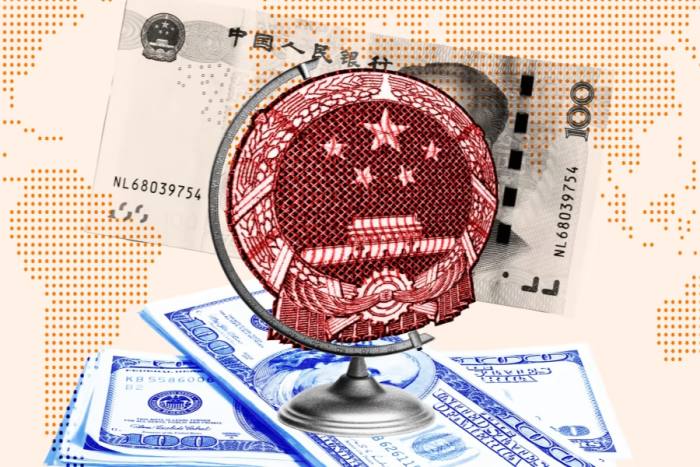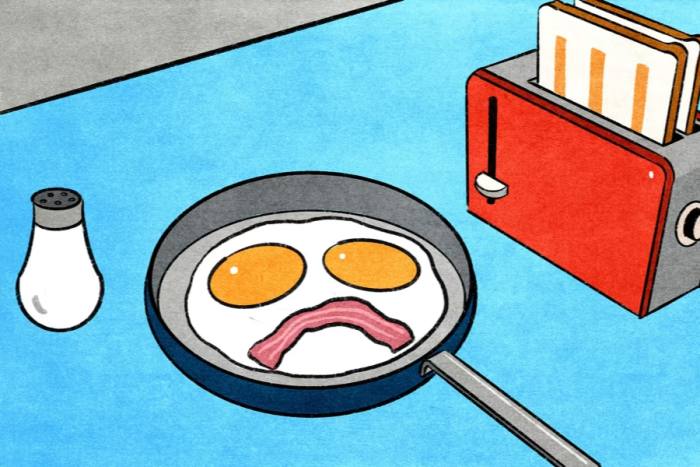
Receive free Yevgeny Prigozhin updates
We’ll send you a myFT Daily Digest email rounding up the latest Yevgeny Prigozhin news every morning.
Good morning. Initial US intelligence reports suggest the plane carrying Yevgeny Prigozhin was not downed by a surface-to-air missile, according to people briefed on the findings.
US officials are still working on the assumption that the plane was brought down on the orders of Vladimir Putin, even as Russia’s president broke his silence on the crash to laud Prigozhin’s record as leader of the Wagner paramilitary group.
One early theory is there could have been an explosion on board but officials cautioned that they have come to no firm conclusions.
“We have no information at this time to suggest that a surface-to-air missile was launched against the private aircraft reportedly carrying Yevgeny Prigozhin,” a senior US administration official said. Read the full story for more on the initial intelligence reports.
And here’s a round-up of our latest coverage of Prigozhin’s apparent demise:
-
Analysis: An ending straight out of The Godfather, Prigozhin’s fiery demise is a message to Russia’s elite that treason against Putin “can’t be forgiven”, analysts said.
-
Prigozhin’s right-hand man: The fatal plane crash also eliminated Dmitry Utkin, Wagner’s mastermind and founder, who was credited with some of the group’s most notable — and gruesome — military successes.
-
Putin reigns supreme: Hopes that the Wagner boss might have punctured the Russian president’s omnipotence have turned to dust, writes Alexander Gabuev.
Here’s what I’m keeping tabs on today and over the weekend:
-
Results: Australian Finance Group, Cathay Financial Holdings, China Merchants Bank, CMOC Group, Wesfarmers and Yuexiu Property report earnings.
-
Philippines: The 2023 FIBA Basketball World Cup begins today in Manila.
-
Rocket launch: A Mitsubishi Heavy Industries rocket carrying a Japanese lunar lander takes off on Saturday from Tanegashima Space Centre. The mission is designed to show that lighter and more inexpensive missions to the moon are feasible.
How well did you keep up with the news this week? Take our quiz.
Five more top stories
1. Brics emerging market bloc has launched the biggest expansion in its history as Argentina, Egypt, Ethiopia, Iran, Saudi Arabia and the United Arab Emirates were invited to join. The expansion represents a victory for China, which pushed for rapid expansion of the grouping before the summit as part of its ambitions to lead the developing world.
2. Japan has started to release radioactive water from its damaged Fukushima nuclear plant into the Pacific Ocean, sparking retaliation from China which suspended imports of Japanese aquatic products. Regional neighbours and the local fishing industry have questioned Tokyo’s plans, despite the decision being supported by the International Atomic Energy Agency. Here’s what’s driving the fierce opposition to Japan’s move.
3. Donald Trump is set to surrender later on Thursday to authorities in Atlanta, Georgia, where he faces 13 criminal charges over his alleged attempts to subvert the results of the 2020 presidential election. The former president, who is the clear frontrunner in the race to run again as the Republican candidate for the White House, will be booked and photographed before being released on a previously negotiated $200,000 bond. Here are more details on the Georgia case.
-
US politics: At the Republican party’s presidential debate on Wednesday, Trump’s rivals needed to make him less relevant or take him down. But they did neither, writes Edward Luce.
4. The US is to sell Taiwan a system with which its F-16 fighters can search and track enemy aircraft through infrared technology. The system will help Taipei to “more effectively deter Chinese air activity”, according to the deputy defence minister, Po Horng-huei. Here’s how the planned sale breaks with the Biden administration’s previous security assistance to Taiwan.
-
US foreign policy: The US will begin to train Ukrainian pilots to fly F-16 fighter jets in Arizona this autumn, the Pentagon has said.
5. European natural gas prices fell sharply on Thursday as the prospect of a strike at a key liquefied natural gas plant in Australia faded, easing traders’ fears that a halt in production would squeeze global supplies. The price of TTF futures was down 11 per cent at €32.50 per megawatt hour after unions and management in Australia reached a tentative agreement on a dispute that had threatened to develop into a strike in the coming weeks.
The Big Read
“De-dollarisation” has been on anti-imperialists’ radar for decades but the overwhelming power of the US currency meant it amounted to little more than a slogan until recently, economists say. But with the expansion of US economic sanctions and the explosion of new technologies for international payments, cracks are starting to appear in the dollar’s once-impregnable position — and China is hoping to take advantage.
We’re also reading . . .
-
The art of movie prosthetics: A recent discussion over Leonard Bernstein raises the question of whether an actor is performing an impression or an interpretation.
-
Hedge funds: So-called multi-manager firms have emerged as the fastest-growing and most profitable corner of the industry. But the model is facing a moment of reckoning.
-
Crisis of courage: Trump’s refusal to turn up to the Republican debate speaks to how the virtue of courage has fallen out of fashion, writes Jemima Kelly.
Chart of the day
China’s provinces have accumulated an enormous amount of debt, much of it through opaque local government financing vehicles — investment companies that raise debt and build infrastructure on behalf of local governments. That has become a huge problem for the world’s second-largest economy.
Take a break from the news
Chefs and food producers are reducing their use of salt across the board — likely catering to a significant proportion of worried consumers who have been convinced that if food tastes perceptibly salty, they will surely die. But FT food writer Tim Hayward wants his salt back.
Additional contributions from Tee Zhuo, David Hindley and Leah Quinn
Recommended newsletters for you
Asset Management — Find out the inside story of the movers and shakers behind a multitrillion-dollar industry. Sign up here
The Week Ahead — Start every week with a preview of what’s on the agenda. Sign up here

